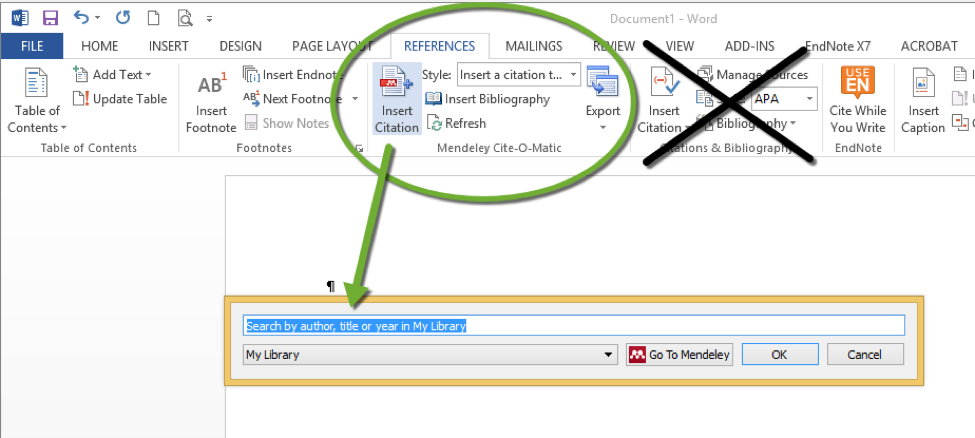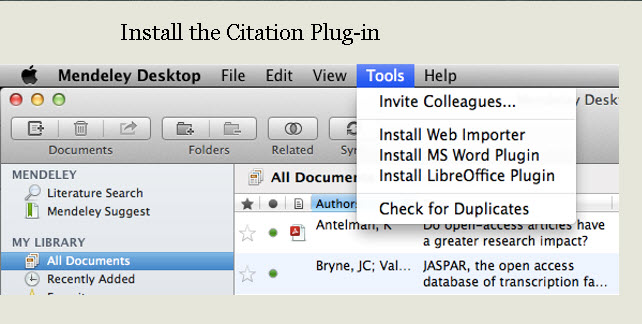
Again, this isn't the worst thing in the world.
#Mendeley add on how to#
You'll at least have to sit down & figure out the schemas for the database & figure out how to get it into some other program that you'll be able to use. I'm just saying there is also plenty of additional value in open source as well.īut all you will have if something unexpected happens to Mendeley is your data: you will have to start from zero to be able to use that data. (If anything, this makes me a bit more paranoid-I can name dozens of proprietary apps that have been available on Linux that have failed. It is much more friendly to end-users/community than most other proprietary software. But it is certainly more costly than what happens if GMU stopped developing Zotero. But all you will have if something unexpected happens to Mendeley is your data: you will have to start from zero to be able to use that data. They also use sqlite for their backend, so their core data is more accessible than, say EndNote's. What happens if you forget to or can't export before the ship has sunk? Google is "too big to fail," but POP & IMAP would do you no good if you hadn't already downloaded all your mail through one of them if their servers went down.Īgain, Mendeley is better than most. It is still valid for products that use "open APIs" or allow "open file formats" to be exported from them, though. I'd be able to run it on future platforms too.ĬB: Note that the risk argument was not the only one I raised. But I run Zotero on ppc-Linux and FreeBSD and other platforms. Mendeley is better than most proprietary apps in this regard: they offer their program on x86-(32,64) Linux, for example. Open source allows usage on more platforms. Mendeley has said part of their business plan is to charge money for "premium features." Because the program is proprietary, there may be no way for non-paying users to gain access to those features.

Open source allows other to submit bugfixes and to add features.
#Mendeley add on download#
You would no longer be able to download their program. But they could change this, and decide to charge for their program. Mendeley is currently available at no cost after you register. Open source guarantees the program will be available, at least as-is, in the future.
#Mendeley add on software#
I don't see why they need to open up the code to the software though, same would go for Zotero.As this is your first post, I question the motivation a bit. There's no reason both projects can't flourish. Rather than getting into a pissing contest about which project is better, then, I'd like users to press the developers of each project to actually deliver on the openness that is the foundation of both of their visions.

Here's the thing, though: both Zotero and Mendeley have the same basic vision. OTOH, Mendeley may have some current advantages if you're in the sciences and big on the collabroation features that Zotero has long promised, but not (yet) delivered. You need to ask yourself, what happens to your data and your documents if Mendeley''s business model fails? And the open source nature of Zotero, while not fully exploited by the Zotero team (which I think holds them back) is no trivial thing. If you're an historian, or a legal scholar, I'd venture to say that Zotero is far ahead of Mendeley. That's an entirely superficial assessment.


 0 kommentar(er)
0 kommentar(er)
